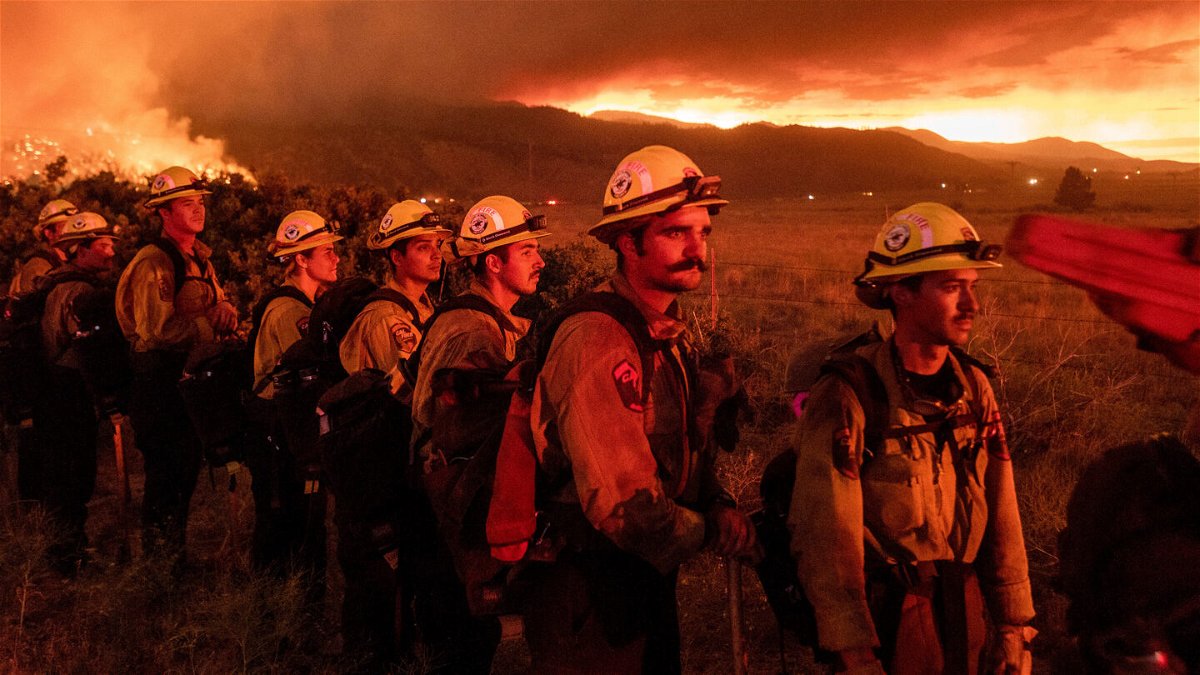US suffering worst wildfire season in a decade

By Sara Sidner and Eric Levenson, CNN
This is Dennis Smith’s 25th fire season with CalFire, so the Fire Captain is fully aware of how much fighting fires has changed in that time.
The temperatures are hotter. The fire seasons are several months longer. The blazes are bigger, and there are more of them.
“We used to get some what you’d call ‘career fires’ maybe once every few years,” he told CNN. “We’re seeing career fires — 100,000-plus acres — (are) a common occurrence every year now.”
For Smith and other firefighters, all that has combined to make their lives more difficult on a personal level.
“The stress level has skyrocketed for us. Where you would have five, six months off for our seasonal firefighters, they’re getting three months off, and if we could bring them back even sooner, we would,” he said. “Our career firefighters, our permanent personnel, they’re spending more time away from their family, they’re spending more time out of their local units, traveling the state assisting our other agencies.”
Smith spoke to CNN on Wednesday in Mariposa County near Yosemite National Park while crews battled the River Fire, which has burned 9,500 acres since it began Sunday and remains just 36% contained. The River Fire is one of 15 active fires of interest in the state, according to CalFire, amid an unprecedented multi-year drought across much of the West.
That drought continues to worsen, as weeks of well-above average temperatures continue to dry out the region, according to the US Drought Monitor released on Thursday morning.
Scientists say the ongoing drought is a clear sign of how the climate crisis is affecting not only the weather but the water supply and the wildfire season. More than 94% of the West was in drought as of Thursday, according to the US Drought Monitor, and that has created tinderbox conditions in which wildfires are prone to quickly spread out of control.
A 2020 study concluded climate change is “a wildfire ‘threat multiplier’ amplifying natural and human risk factors that are already prevalent throughout California.” Researchers found that since 1980 climate change had doubled the area burned by wildfires in the West.
Already this year’s fire season has seen more than three times as much land burned in California than during the same time span last year, officials said. And the state recorded its worst fire season last year, with around 4.1 million estimated acres burned, according to the National Interagency Fire Center.
‘It’s rough on folks’
Firefighters on the ground like Smith have seen such changes firsthand. The fire season now extends from March and April through December, about four months more than what it used to be, Smith said. He used to work shifts of 24 hours on and 24 hours off — but the sheer number of fires has made those shifts increasingly 36 or 48 hours on and 24 hours off.
“It spreads our resources really thin, so the crews are working long hours, triple-digit temperatures, 115 degrees the first day we were over here, single-digit humidities. And then you add a strong wind like we had the first day,” he said. “The fire growth and potential is something that we’ve come to see as a norm over the last four to five years but nothing like 25 years ago when I started.”
Justin Macomb, Battalion Chief for CalFire, similarly has seen the changes over his 15 years on the job.
“Something has changed to where the fuels are drier and we’re getting these weather patterns that are causing us to get these bigger fires early on,” he said.
“It’s rough on folks. When I first started, fire seasons were four to five months long. Now you’re running all the way into December. You’re looking at almost year-round fire seasons at this point. Very taxing on the ground troops. Seems like you just go from fire to fire to fire now. It can be difficult.”
The River Fire, which began Sunday, burned a widespread 4,000 acres in its first 12 hours, Macomb said.
“Fifteen years ago when I started, you would maybe go to a few fires that were half the size of what we’re dealing with now. And now every year it’s humongous major incidents that we’re going to,” he said. “So definitely something has changed.”
The-CNN-Wire
™ & © 2021 Cable News Network, Inc., a WarnerMedia Company. All rights reserved.
CNN’s Angela Fritz and Brandon Miller contributed to this report.